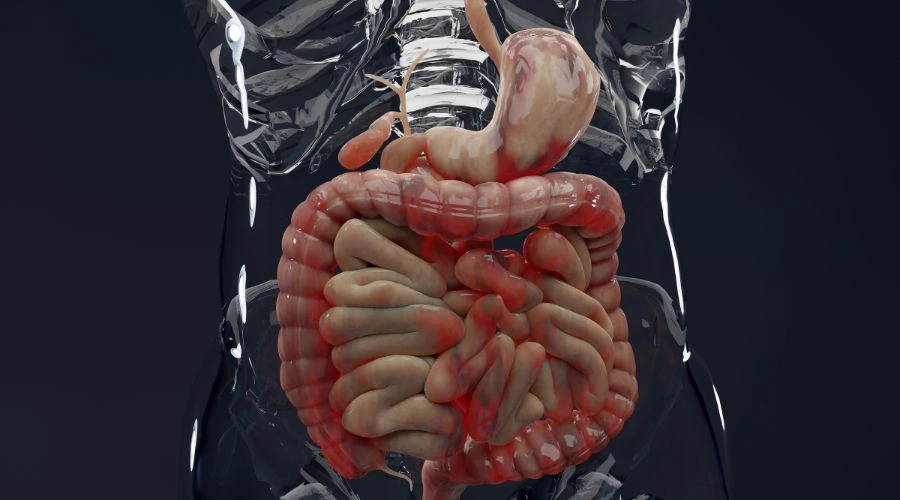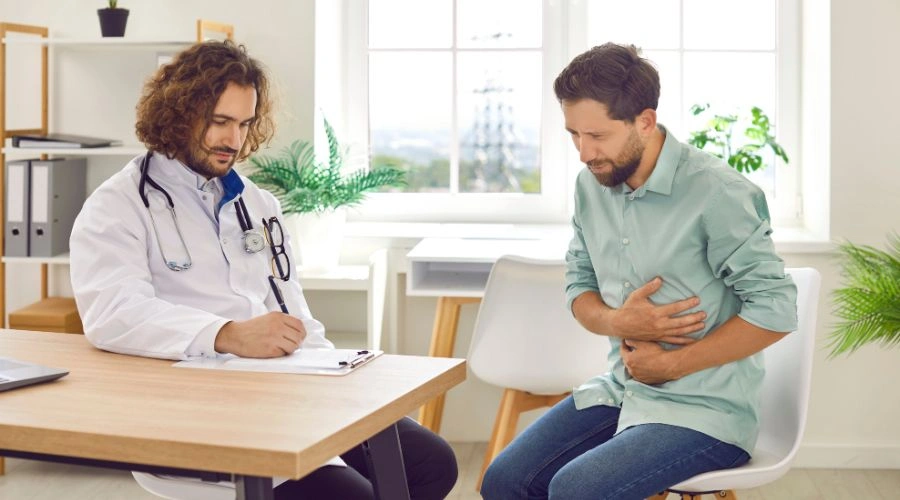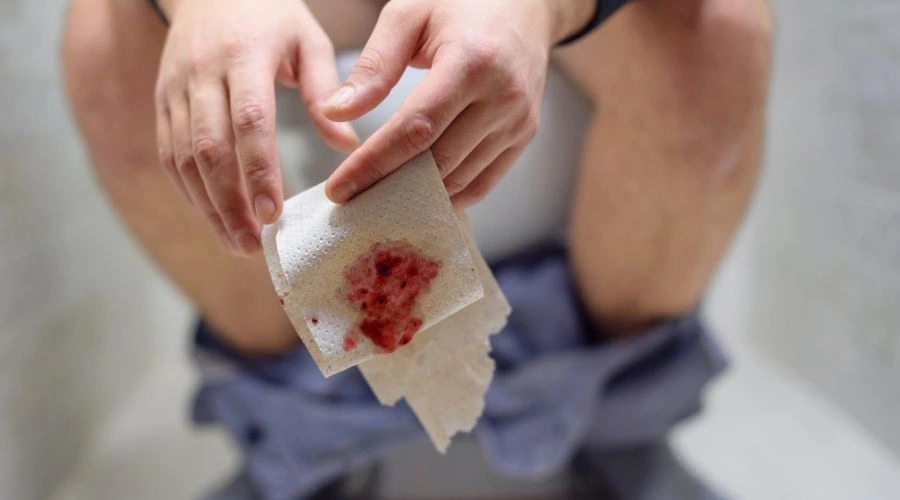What are the Effects of Drinking Alcohol on Your Bowel Movements?
Chances are that you already know drinking booze is bad for your health. Alcohol consumption causes a host of issues… some more alarming than others, with bloody stool being a clear red flag.
Can alcohol cause bleeding in stool, and what should be done about it?
Alcohol causes inflammation of the gastrointestinal tract, which can lead to common symptoms such as pain and bloody stools. Alcoholic gastritis, peptic ulcers, and gastrointestinal hemorrhage are possible, as are worsening of other conditions like IBS, Crohn’s Disease, and GERD.
If you experience blood in your stool, you should seek medical attention as soon as possible. It might require medication to stop the bleeding, blood transfusions, or an endoscopy to determine the cause.
Ingrained Recovery can help you take the first steps away from drinking so that you can experience relief from symptoms like these. Here is what you need to know about this serious consequence of heavy drinking and how you can remedy the problem.
Get Effective Detox and Rehab Options
Find Help At Ingrained Recovery
How Does Alcohol Affect the Gastrointestinal Tract?
When faced with alcohol consumption, your body might respond negatively. Never is this more true than in a careful examination of the GI tract. Your bowel movements can be seriously affected, especially when someone is a heavy drinker.
Knowing how the digestive system is impacted by booze can provide insights on how you rectify the situation and may give you some incentive to seek treatment for your drinking.
Alcohol Abuse Often Leads to Alcoholic Gastritis
One of the first conditions that can cause blood in your stool is simple to understand: gastritis. This is the technical term for inflammation of the stomach lining, a condition that is common with heavy use. While occasional drinking may not have a long-term impact, routine or excessive drinking can.
Eventually, the stomach lining may even begin to erode if you don’t stop drinking alcohol. This is even more pronounced for those with longstanding alcohol addiction.
As gastritis begins to develop, you’ll experience a range of symptoms, including burning and stomach pain, nausea, vomiting, bloating, and a feeling of excessive fullness after eating.
Of course, the main symptom that it has escalated is bloody stool or vomit from the damage to the stomach lining.
Can an Alcohol Use Disorder Cause Peptic Ulcers in the GI Tract?

Related to gastritis, you might experience a different cause of inflammation in the digestive tract. These peptic ulcers cause significant abdominal pain and are often worsened by an alcohol use disorder.
While a single drink might not lead to ulcers, regular drinking contributes to worsening symptoms.
Not only does drinking alcohol prevent healing of the ulcers, but drinking heavily can exacerbate the condition. Drinking on an empty stomach is even worse for ulcer development, causing extreme irritation of the stomach and duodenum lining.
As the ulcers perforate and sores begin to form, you’ll experience gastrointestinal bleeding that often surfaces in your stool color.
Hemorrhoids and Blood in Your Stool from Drinking Alcohol
Another potential cause of blood in your stool is the appearance of hemorrhoids. Alcohol is a known cause of dehydration, which causes the GI tract not to function as efficiently in eliminating waste. As a result, you may strain more during bowel movements and experience severe constipation.
All of this effort can lead to even more rectal bleeding and more severe hemorrhoids.
Of course, there are also other mechanisms by which alcohol can cause rectal bleeding. Regular alcohol use can cause blood vessels to dilate. Blood pressure increases simultaneously. All of this forces more blood into the veins around the rectum and worsens hemorrhoids, leading to more bleeding.
Gastroesophageal Reflux Disease (GERD) and Bloody Stool
Gastroesophageal reflux disease also leads to inflammation of the GI tract, primarily in your esophagus. As the contents of the stomach become more acidic, they can flow backward up to the esophagus. In turn, this leads to further damage to the muscles that extend from the mouth to the stomach, resulting in bleeding.
This blood can then pass through the digestive tract and into your bowel movements. For some people, it may appear as bright red blood, while other symptoms may include tarry or black stool. Both should be cause for concern and require medical attention for acid reflux.
Can Alcohol Worsen Crohn’s Disease and Inflammatory Bowel Disease?

For those who have already been diagnosed with an inflammatory bowel disease like Crohn’s, alcohol can make everything seem much worse. The irritation caused by booze further damages the lining of the intestine. In those with Crohn’s, the intestinal lining is already quite fragile.
As inflammation increases, it can lead to internal bleeding that may surface in the stool. Almost half of the people with inflammatory bowel disease reported a worsening of symptoms after drinking.
Finally, drinking leads to more diarrhea in Crohn’s patients. Dehydration becomes that much more likely, triggering concurrent issues such as hemorrhoids.
Irritable Bowel Syndrome, Alcohol & Blood in Your Stool
Irritable bowel syndrome (IBS) and alcohol addiction can negatively impact each other. Your IBS may flare up when you drink too much alcohol, leading to more diarrhea, loose stools, and chronic inflammation in the stomach and GI system. It may cause changes in your bowel habits, but it shouldn’t trigger blood in your stool.
Those with IBS and bloody stool should seek treatment because this could be a sign of increased stomach inflammation or other gastrointestinal symptoms that require more help.
Gastrointestinal Hemorrhage
One of the most serious health complications associated with heavy drinking is the risk of gastrointestinal hemorrhage. Much as peptic ulcers can form on the interior of the stomach, the higher rates of inflammation can also trigger damage to the intestines.
These hemorrhages could potentially be fatal, which is why you should always get professional support for blood left in the toilet bowl.
The problem is that many people don’t see blood clots in their stool or vomit as a cause for medical help. If you experience these issues or are pooping blood, you should contact a primary care physician or head to the emergency room.
Keep in mind that other conditions, such as liver disease and peptic ulcers, can heighten the risk of GI hemorrhages.
Should You Seek Medical Help for Gastrointestinal Problems?

No matter what the potential cause of your bloody stool, you should always seek medical help when this takes place. You might think that you know the root cause, but doctors may surprise you with the implementation of further tests. Blood in the stomach, small intestine, or large intestine is serious.
The first thing a doctor should do is collect your medical history, including any GI issues that occurred before the blood loss. Then, they might administer medication to stop the bleeding or provide you with blood transfusions to make up for blood loss.
Endoscopy is often necessary to get to the bottom of what’s causing your issues, which can then lead to surgical repair if needed.
If you experience tachycardia or faint from losing too much blood, you need to get support immediately. Don’t delay by waiting for your healthcare professional to have an open appointment. You should go to the emergency room as soon as possible.
Ingrained Recovery for Medical Alcohol Detox
One of the best things you can do for both your GI issues and your mental health is to stop drinking alcohol. Unfortunately, trying to quit cold turkey is usually ill-advised. Most people require assistance achieving sobriety in their day-to-day lives. This is where Ingrained Recovery comes into the picture.
We offer an upscale and comfortable medical detox program for those struggling with alcohol use. While you’re with us, you can rest easy knowing that a healthcare provider is watching over you 24 hours a day, seven days a week.
We can even help you step down from an intensive detox to our residential treatment program. Here, you will find the freedom to explore our sprawling 50-acre campus in Georgia and participate in more holistic treatments, such as equine therapy.
Up To 100% of Rehab Covered By Insurance
Find Help At Ingrained Recovery
Choose Ingrained Recovery for Alcohol Treatment Today
You don’t have to wait for alarming symptoms, like blood in your stool, to surface before you reach out for assistance. Ingrained Recovery is here to guide you through the early days of recovery. We offer same-day admissions for all of our comprehensive treatment programs, including detox.
Let our enrollment team answer your questions and verify your insurance benefits. You might even be surprised to learn that your insurance will cover the entire cost of your stay. Reach out now to learn more and take the first steps toward sober living!
References
- Roberts D. M. (1972). Chronic gastritis, alcohol, and non-ulcer dyspepsia. Gut, 13(10), 768–774.
- Malik TF, Gnanapandithan K, Singh K. Peptic Ulcer Disease. [Updated 2023 Jun 5]. In: StatPearls [Internet]. Treasure Island (FL): StatPearls Publishing; 2025 Jan-. Available from:
- Lohsiriwat V. (2012). Hemorrhoids: from basic pathophysiology to clinical management. World journal of gastroenterology, 18(17), 2009–2017.
- Chen, S. H., Wang, J. W., & Li, Y. M. (2010). Is alcohol consumption associated with gastroesophageal reflux disease?. Journal of Zhejiang University. Science. B, 11(6), 423–428.
- Piovezani Ramos, G., & Kane, S. (2021). Alcohol Use in Patients With Inflammatory Bowel Disease. Gastroenterology & hepatology, 17(5), 211–225.
- Gundling, F., Harms, R. T., Schiefke, I., Schepp, W., Mössner, J., & Teich, N. (2008). Self assessment of warning symptoms in upper gastrointestinal bleeding. Deutsches Arzteblatt international, 105(5), 73–77.

